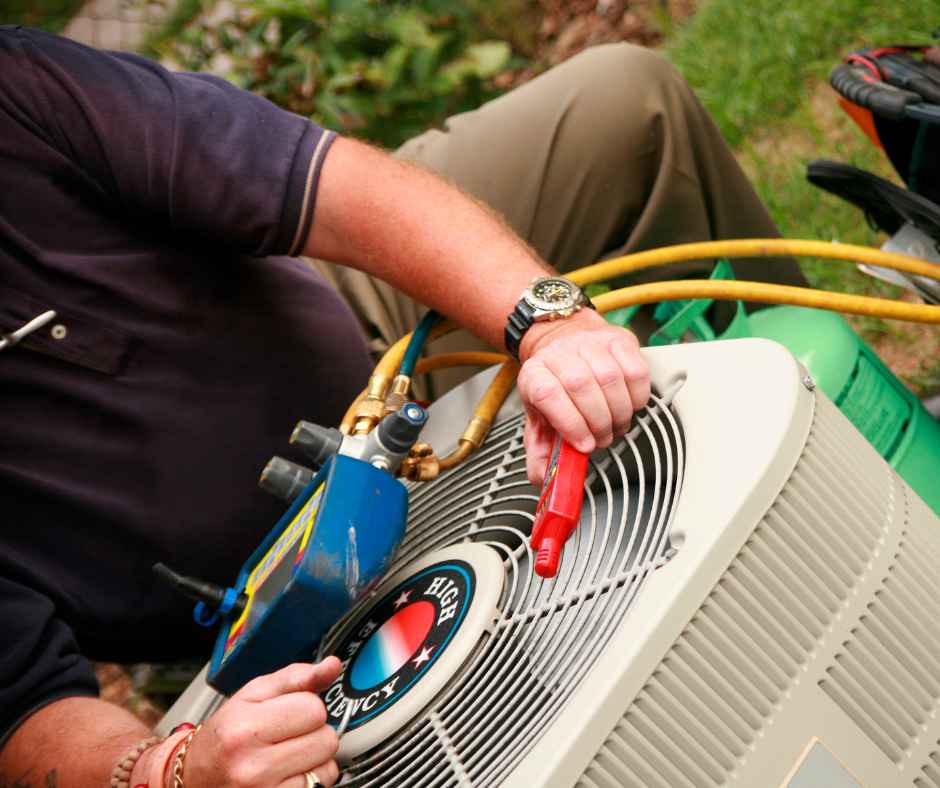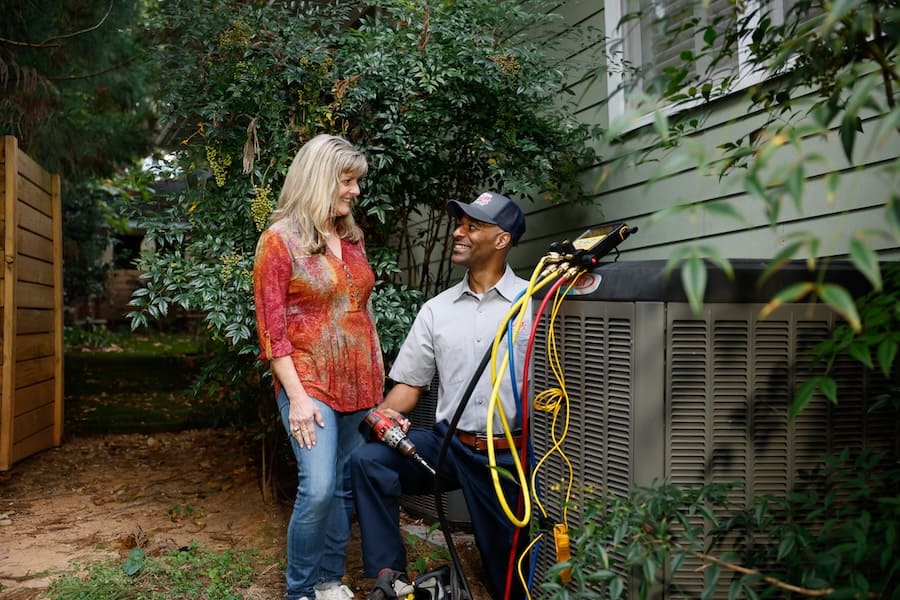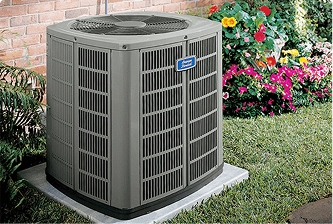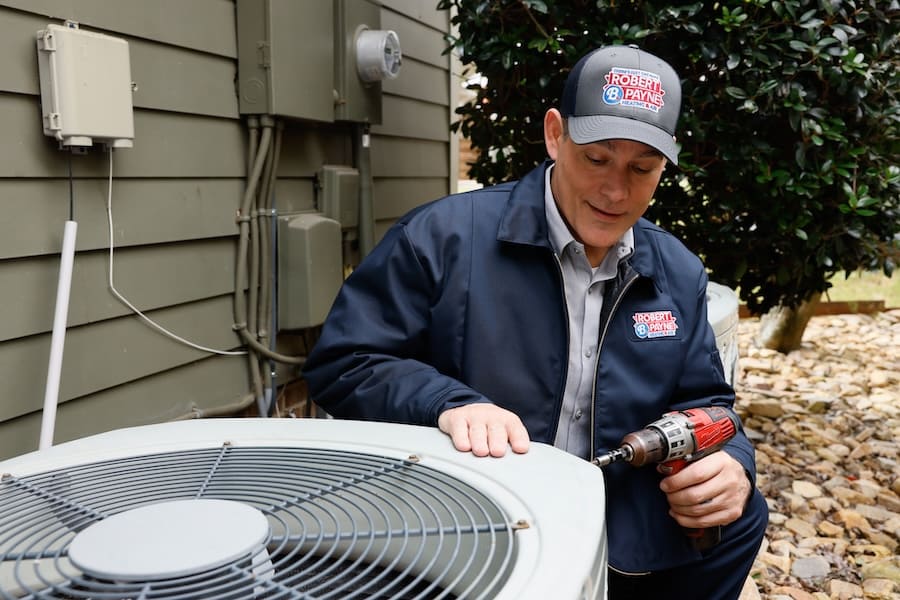Choosing the right heating system for your Fredericksburg home is one of the most important decisions you can make for year-round comfort and efficiency. With Virginia’s chilly winters and unpredictable temperature swings, the wrong system or the wrong size can lead to uneven heating, wasted energy, and higher utility bills. The right system, properly sized for your home, does far more than keep you warm. It maximizes energy efficiency, improves indoor air quality, and ensures every room feels just right.
Understanding how to select and size a heating system is about finding balance between performance, comfort, and cost. Whether you are upgrading an outdated furnace or building a new home, learning the basics of heating system selection helps you make a confident, informed investment in your home’s long-term comfort.
In this blog, we will walk you through how to choose the best heating system for your space, what sizing really means, and why working with a trusted HVAC professional makes all the difference.
Understanding Heating System Types
Before deciding what size heating system your home needs, it helps to understand the main types available. Each option offers unique benefits depending on your home’s layout, budget, and energy goals.
Here are the most common systems for Fredericksburg homeowners:
- Furnaces: Use gas, oil, or electricity to heat air and distribute it through ducts. They provide quick, consistent warmth and remain a popular choice for homes in colder climates.
- Heat Pumps: Transfer heat instead of generating it, making them highly energy efficient. They can both heat and cool your home, which makes them ideal for Fredericksburg’s moderate winters and humid summers.
- Boilers: Use water or steam to create radiant heat that warms spaces evenly through baseboards, radiators, or in-floor tubing. They provide steady comfort and do not dry out indoor air.
- Ductless Mini-Split Systems: Deliver zoned comfort using individual air handlers in specific rooms. They are perfect for homes without ductwork or for adding heating to new spaces and renovations.
Each type has distinct advantages, and the best choice depends on your home’s design, energy efficiency goals, and comfort preferences.
Key Factors to Consider When Choosing a Heating System
Selecting the right heating system for your Fredericksburg home involves more than comparing brands or price tags. Several important factors determine which system will provide the best comfort, efficiency, and long-term value for your space.
- Home Size and Layout: Larger homes typically need systems with greater capacity, while open-concept spaces or multi-story layouts may require zoning for balanced heating.
- Insulation and Home Age: Well-insulated homes retain heat more effectively, allowing for smaller, more efficient systems. Older homes may need insulation improvements before upgrading.
- Energy Efficiency Ratings: Look for labels such as AFUE (Annual Fuel Utilization Efficiency) for furnaces and HSPF (Heating Seasonal Performance Factor) for heat pumps. Higher ratings mean lower energy costs.
- Fuel Type Availability: Your home’s location and existing infrastructure may determine whether natural gas, oil, propane, or electricity is the best option.
- Budget and Long-Term Costs: While a high-efficiency system might cost more upfront, it can significantly reduce monthly utility bills and maintenance expenses.
- Environmental Impact: Energy-efficient and hybrid systems reduce carbon emissions and support a cleaner environment without sacrificing comfort.
By weighing these factors carefully, you can narrow down the system that fits your home’s needs and delivers reliable comfort for years to come.
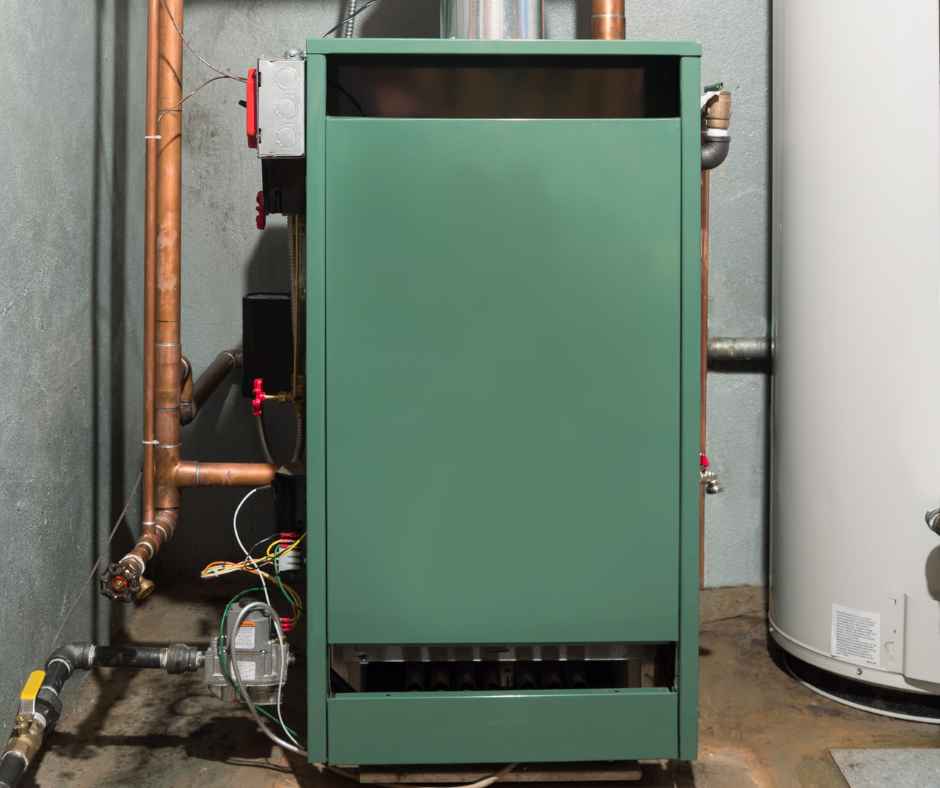
The Importance of Proper System Sizing
Choosing the right size heating system is just as important as selecting the right type. A system that is too large or too small for your home will struggle to keep temperatures comfortable and can waste energy in the process.
When a heating system is oversized, it heats the space too quickly, causing frequent on-and-off cycling. This short cycling wastes energy, increases wear on components, and can lead to uneven temperatures from room to room.
A system that is undersized runs constantly to reach the desired temperature. This overwork not only raises energy bills but also shortens the lifespan of the equipment.
Proper sizing ensures your system runs efficiently, maintains steady warmth, and reduces long-term maintenance costs. The process involves more than square footage alone. Professionals use precise calculations to evaluate insulation, window placement, and your home’s exposure to sun and wind.
Having a correctly sized heating system improves comfort, lowers operating costs, and supports a healthier indoor environment. It also ensures your investment performs reliably through Fredericksburg’s coldest months.
How Professionals Calculate the Right Size for Your Home
Sizing a heating system correctly requires more than an online calculator or a quick estimate. HVAC professionals use a detailed process called a Manual J load calculation to determine exactly how much heating power your home needs. This calculation helps ensure that your system is neither too large nor too small for your space.
Here’s what the process typically includes:
- Measuring Total Square Footage: Technicians begin by evaluating the total heated area of your home, including living spaces, basements, and additions.
- Assessing Insulation and Air Leaks: The amount and quality of insulation in your walls, attic, and floors affect how much heat your home retains.
- Evaluating Windows and Sun Exposure: Window size, direction, and shading impact how much heat enters or escapes your home throughout the day.
- Considering Household Size and Appliances: The number of people and heat-producing devices, such as stoves and electronics, influence heating needs.
- Reviewing Local Climate Conditions: Weather patterns in Fredericksburg play a key role in how much heating output your home requires.
Professional load calculations provide an accurate foundation for system selection. This ensures your equipment delivers even, efficient heating, prevents energy waste, and extends the lifespan of your investment.
Regional Considerations: Heating in Fredericksburg, VA
Fredericksburg’s climate plays a big role in determining the most effective type of heating system for your home. Winters in this region are generally mild to moderately cold, with occasional temperature drops and periods of high humidity. Because of these variable conditions, homeowners benefit from systems that can adapt efficiently to changing weather.
Heat pumps are especially popular in Fredericksburg because they offer both heating and cooling in one unit and perform well in moderate climates. Hybrid systems that combine a heat pump with a gas furnace are another strong choice, providing efficient comfort even when temperatures fall below freezing.
Energy efficiency is also an important local concern. Virginia homeowners can often take advantage of energy rebates and incentives for upgrading to high-efficiency systems, which helps offset installation costs while lowering long-term utility expenses.
Local conditions also make proper insulation and air sealing essential. Ensuring your home retains heat effectively allows your system to operate at peak efficiency and keeps energy bills manageable.
When to Replace vs. Upgrade Your Current Heating System
Knowing whether to replace your heating system or upgrade certain components can save you both time and money. While many homeowners want to extend the life of their current system, there comes a point when replacement becomes the smarter long-term investment.
- You may want to consider a replacement if you notice any of the following:
- Your system is more than 15 years old and becoming less efficient
- Energy bills continue to rise despite regular maintenance
- Certain rooms never seem to reach a comfortable temperature
- You hear unusual noises or experience frequent breakdowns
- Repair costs are approaching half the price of a new unit
In some cases, an upgrade or retrofit may be enough. For example, adding a smart thermostat, improving ductwork, or upgrading insulation can enhance performance and reduce strain on your system.
However, if your system struggles to keep up during cold weather or uses outdated technology, replacing it with a modern high-efficiency model will provide better comfort, reliability, and savings.
A professional HVAC technician can evaluate your current setup and recommend whether an upgrade or full replacement offers the best long-term results for your Fredericksburg home.
Choosing the Right HVAC Contractor
Selecting the right HVAC contractor is just as important as choosing the right system. A quality installation ensures your heating equipment operates efficiently, safely, and reliably for years to come. Poor installation, on the other hand, can lead to energy loss, system malfunctions, and higher repair costs down the road.
When comparing HVAC companies in Fredericksburg, look for these key qualities:
- Experience and Training: Choose a contractor with proven experience and up-to-date knowledge of modern heating technologies.
- Certifications and Licensing: Verify that technicians are licensed, insured, and certified by reputable organizations such as NATE (North American Technician Excellence).
- Transparent Estimates: A reliable company provides clear, written quotes and explains your options without pressure.
- Strong Local Reputation: Read reviews and ask neighbors or friends for recommendations to find a trusted local provider.
- Comprehensive Services: The best contractors offer installation, maintenance, and repair under one roof for convenience and continuity of care.
Robert B. Payne has served the Fredericksburg area for decades, providing professional system assessments, expert installations, and ongoing service to keep homes comfortable year-round. Partnering with a trusted local team ensures your investment in a new heating system pays off in both comfort and efficiency.
Choose Robert B. Payne For HVAC System Sizing
Choosing and sizing the right heating system for your Fredericksburg home is an investment in comfort, efficiency, and long-term peace of mind. When your system is properly selected and professionally installed, it provides reliable warmth, balanced temperatures, and lower utility costs through every season.
By understanding the different system types, the importance of accurate sizing, and the impact of local climate conditions, you can make a confident, informed decision. Partnering with a trusted HVAC professional ensures your home gets a heating solution tailored to its unique needs.
For homeowners ready to upgrade or replace their system, Robert B. Payne is here to help with expert guidance, precision installation, and dependable local service. Schedule your consultation today to start enjoying a more efficient, comfortable home.
Frequently Asked Questions About Heating System Selection and Sizing
How long does it take to install a new heating system?
Most heating system installations take one to three days, depending on the type of system and the complexity of your home’s layout. Ductless systems are typically faster to install than full furnace replacements, which may require ductwork modifications.
What size heating system do I need for a 2,000-square-foot home?
The correct size depends on insulation, ceiling height, window placement, and your home’s energy efficiency. On average, a well-insulated 2,000-square-foot home might need a system rated between 50,000 and 60,000 BTUs, but a professional load calculation is the only way to know for sure.
Can I replace just my furnace and keep the existing ductwork?
Yes, in many cases you can reuse existing ductwork if it’s in good condition. However, a technician should inspect it for leaks, blockages, or poor design that could reduce your new system’s efficiency.
What maintenance does a heating system require?
Routine maintenance should include changing air filters every one to three months, cleaning vents, checking thermostat settings, and scheduling a professional inspection at least once a year before winter begins.
Are smart thermostats worth it for heating efficiency?
Absolutely. Smart thermostats allow you to program and monitor your heating schedule remotely, automatically adjust temperatures for efficiency, and learn your preferences over time to reduce energy waste.



